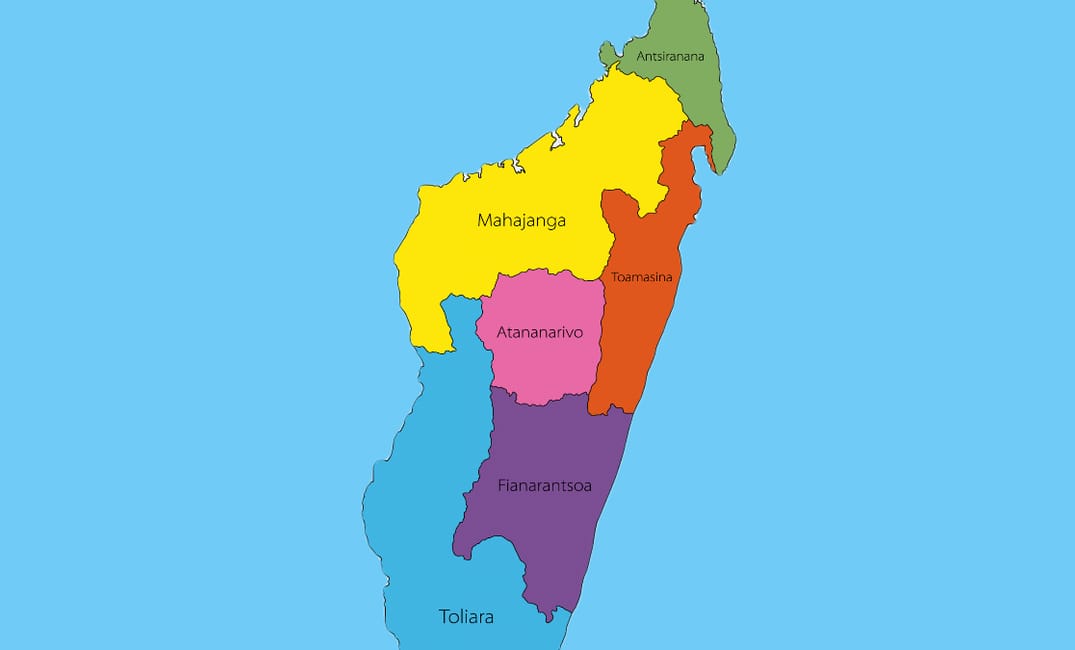By Harrison Galliven
If there is clear evidence that life is unfair it can be seen in Madagascar today. The country is currently facing what the UN has called the world’s first ‘climate change famine’, which has left tens of thousands of people in the country’s southern region dangerously exposed to the risk of starvation. That this crisis has afflicted a country with one of the world’s lowest carbon dioxide footprints is a grave injustice and evidence of the very real consequences bought by climate change.

Support us!
Support us by contributing as little as £1 so we can continue to give young people a voice and a platform they deserve
£1.00
Madagascar, a country known for its bountiful biodiversity, is no stranger to extreme weather and natural disasters. In recent years it has faced a torrent of cyclones, earthquakes and ravaging locust plagues. However, the severe drought that has beset the country’s Southern region is unlike anything seen before. It is the country’s worst drought in forty years and has drawn worrying comparisons to the deadly South Sudanese drought of 2017.
Much of the affected is populated by smallholder farmers who are dependent on their produce, and the stubborn persistence of failed harvests has placed them in a precarious position. Many of those have had to subsist on insects and raw cactus leaves in between the infrequent arrivals of food aid. The UN World Food Programme has estimated that acute malnutrition for children under five has doubled as a result of this plight. Furthermore, there have also been worrying reports of children abandoning school to focus on foraging for food. These circumstances paint a grim picture for the country’s short and long term development and will stymie the growth of the nation’s youth for years to come.
The factors leading to this historic drought, or keré as it is known locally, are manifold. However, climate change takes the lion’s share of the blame. Rain is typically infrequent in the South, but the current keré has been seen a lack of rain for almost three years in parts. This barrenness has dealt a blow to Madagascan agriculture that will be hard to mend; especially considering their rudimentary farming practices.
The ongoing COVID-19 pandemic has only proven to further compound the issues caused by the drought. Before the pandemic, the Madagascan economy was expected to grow by 5.2%, however, in 2020 it shrank by 4.2%. Subsequent lockdowns and a ban on tourism cut much off the country’s key economic drivers. Moreover, the restricted movement of goods has rocked the country’s profitable mining industry, which, in turn, has pushed the unemployment rate skyward.
The Island’s perennial political instability is the final element of this perfect storm. The failure of Malagasy leaders to address the country’s vast wealth inequality has caused deeper division between the north and the south. Even when politicians like the current President, Andry Rajoelina, have spent public funds on infrastructure projects in the South, much of the money is siphoned off by corrupt political elites. Frequent raids by bandit groups have made the region even more inhospitable. Aid deliveries are now accompanied by a military escort but the bandits are evasive and continue to harass the region’s rural civilians.
This confluence of climate change, COVID-19 and conflict is creating a very different kind of crisis that the world must heed. By naming it the world’s first ‘climate change famine’, the UN is signalling that this crisis is self-inflicted (as is the nature of a famine). However, the fault does not lay with Madagascans but with developed nations of the world whose vast carbon emissions have allowed the climate crisis to develop to such an extent. Madagascar’s share of the world’s CO2 is a negligible 0.01% yet it is facing the sharp end of the climate emergency and will continue to face droughts like the current keré unless multilateral action is taken.
Crises like these provide an impetus for countries to act cohesively in the upcoming COP26 event. This flagship climate conference in November will provide nations with a chance to unify global climate ambitions. Global players from around the world must look beyond their geopolitical squabbles to agree on the global net-zero targets. Although countries have shown individual advancements, not enough has been done across the spectrum to address the most polluting elements of our economies. China’s recent commitment to stop building coal power plants abroad whilst remaining committed to their domestic construction is a perfect example of this. Leaders must be bold and resolute if they are to extricate their countries from dirty energy.
However, the reality is that real-world consequences like that being seen in Madagascar are still an abstract consideration for many developed nations. Dependable weather and technological advancement have so far shielded most of these states from the worst of climate change. Yet with the most recent death toll standing at 340 and rising, the situation is very real for the Malagasy. With the arrival of the lean season comes more desperation for the embattled south. Now more than ever is the time for action.
Thanks for reading our article! We know young people’s opinions matter and really appreciate everyone who reads us.
Give us a follow on Instagram, Twitter and Facebook to stay up to date with what young people think.

